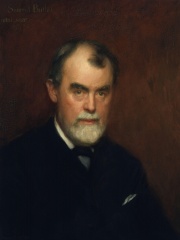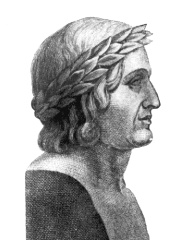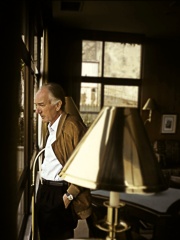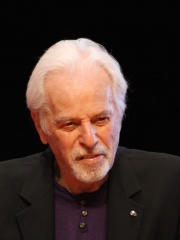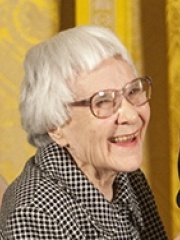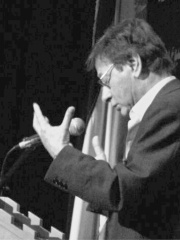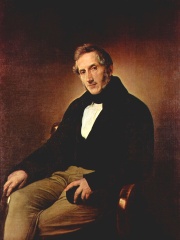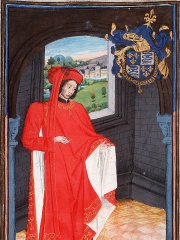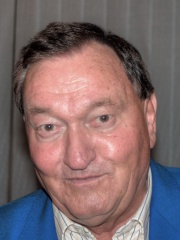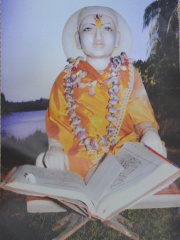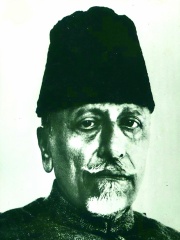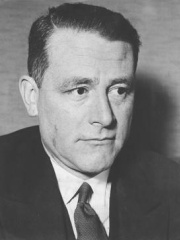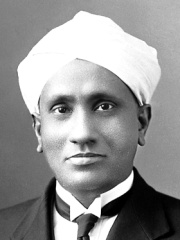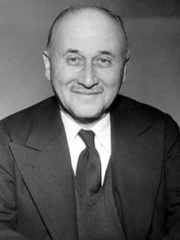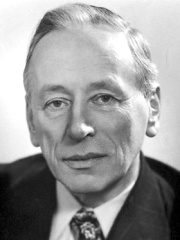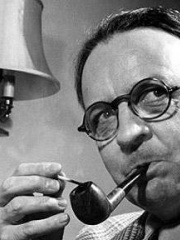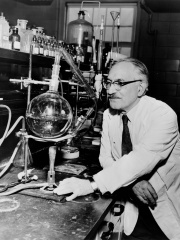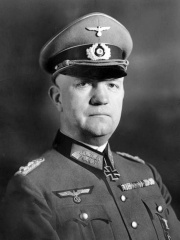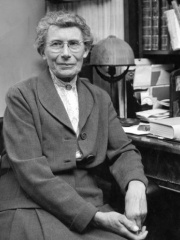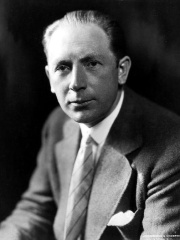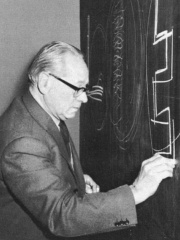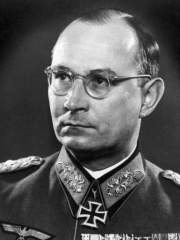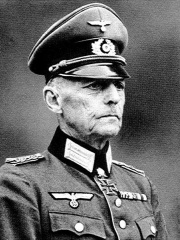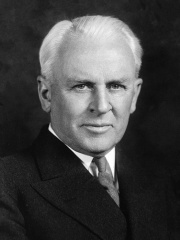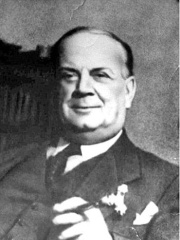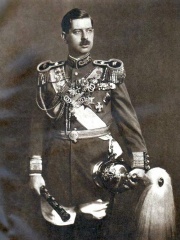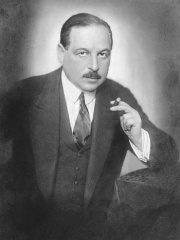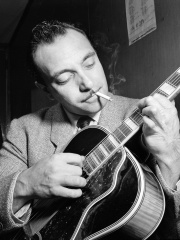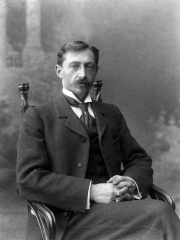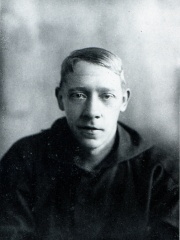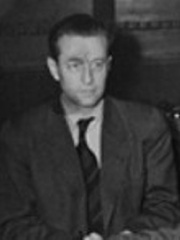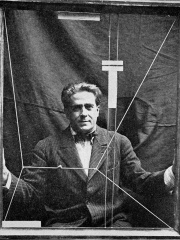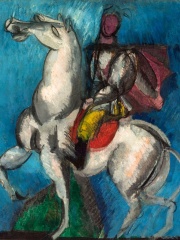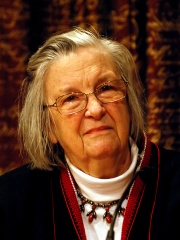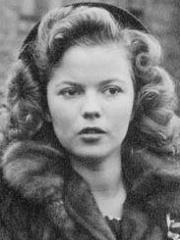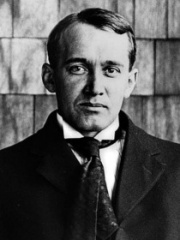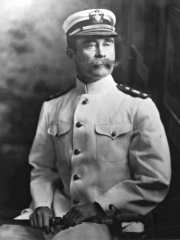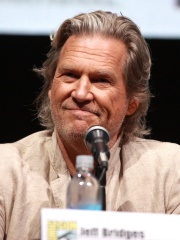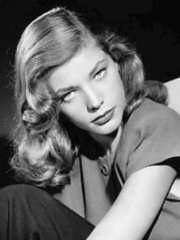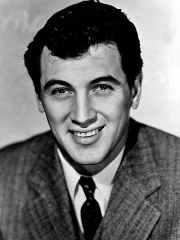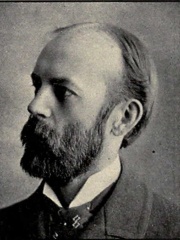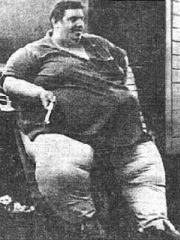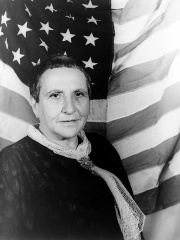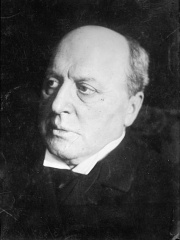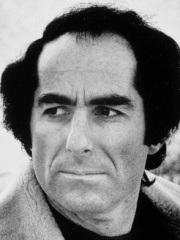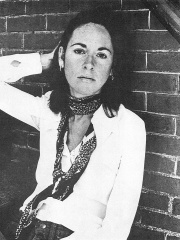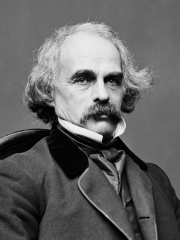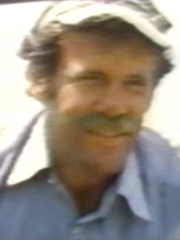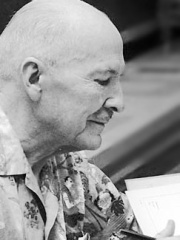WRITER
Eugene O'Neill
1888 - 1953
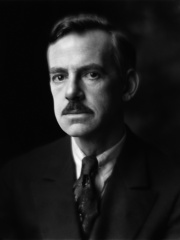
 Eugene O'Neill
Eugene O'Neill
Eugene Gladstone O'Neill (October 16, 1888 – November 27, 1953) was an American playwright. His poetically titled plays were among the first to introduce into the U.S. the drama techniques of realism, earlier associated with Chekhov, Ibsen, and Strindberg. The tragedy Long Day's Journey into Night is often included on lists of the finest American plays in the 20th century, alongside Tennessee Williams's A Streetcar Named Desire and Arthur Miller's Death of a Salesman. He was awarded the 1936 Nobel Prize in Literature. Read more on Wikipedia
His biography is available in 87 different languages on Wikipedia (up from 86 in 2024). Eugene O'Neill is the 467th most popular writer (up from 493rd in 2024), the 567th most popular biography from United States (down from 494th in 2019) and the 53rd most popular American Writer.
Eugene O'Neill was an American playwright who is most famous for his plays "The Iceman Cometh" and "Long Day's Journey Into Night."
Memorability Metrics
Page views of Eugene O'Neill by language
Among WRITERS
Among writers, Eugene O'Neill ranks 467 out of 7,302. Before him are Samuel Butler, Statius, Thomas Bernhard, Alejandro Jodorowsky, Harper Lee, and Mahmoud Darwish. After him are Alessandro Manzoni, Charles, Duke of Orléans, Erich von Däniken, Tulsidas, Mo Yan, and Françoise Sagan.
Most Popular Writers in Wikipedia
Go to all RankingsSamuel Butler
1835 - 1902
HPI: 73.29
Rank: 461
Statius
40 - 96
HPI: 73.28
Rank: 462
Thomas Bernhard
1931 - 1989
HPI: 73.28
Rank: 463
Alejandro Jodorowsky
1929 - Present
HPI: 73.28
Rank: 464
Harper Lee
1926 - 2016
HPI: 73.28
Rank: 465
Mahmoud Darwish
1941 - 2008
HPI: 73.27
Rank: 466
Eugene O'Neill
1888 - 1953
HPI: 73.26
Rank: 467
Alessandro Manzoni
1785 - 1873
HPI: 73.23
Rank: 468
Charles, Duke of Orléans
1394 - 1465
HPI: 73.21
Rank: 469
Erich von Däniken
1935 - Present
HPI: 73.20
Rank: 470
Tulsidas
1532 - 1623
HPI: 73.16
Rank: 471
Mo Yan
1955 - Present
HPI: 73.16
Rank: 472
Françoise Sagan
1935 - 2004
HPI: 73.15
Rank: 473
Contemporaries
Among people born in 1888, Eugene O'Neill ranks 23. Before him are Abul Kalam Azad, Carl Schmitt, C. V. Raman, Jean Monnet, Frits Zernike, and Raymond Chandler. After him are Selman Waksman, Friedrich Fromm, Inge Lehmann, F. W. Murnau, Johannes Itten, and Friedrich Olbricht. Among people deceased in 1953, Eugene O'Neill ranks 13. Before him are Gerd von Rundstedt, Robert Andrews Millikan, Guccio Gucci, Carol II of Romania, Klement Gottwald, and Emmerich Kálmán. After him are Django Reinhardt, Ivan Bunin, Vladimir Tatlin, Hans Fritzsche, Francis Picabia, and Raoul Dufy.
Others Born in 1888
Go to all RankingsAbul Kalam Azad
POLITICIAN
1888 - 1958
HPI: 75.21
Rank: 17
Carl Schmitt
PHILOSOPHER
1888 - 1985
HPI: 74.91
Rank: 18
C. V. Raman
PHYSICIST
1888 - 1970
HPI: 74.29
Rank: 19
Jean Monnet
POLITICIAN
1888 - 1979
HPI: 74.25
Rank: 20
Frits Zernike
PHYSICIST
1888 - 1966
HPI: 73.57
Rank: 21
Raymond Chandler
WRITER
1888 - 1959
HPI: 73.39
Rank: 22
Eugene O'Neill
WRITER
1888 - 1953
HPI: 73.26
Rank: 23
Selman Waksman
PHYSICIAN
1888 - 1973
HPI: 72.94
Rank: 24
Friedrich Fromm
POLITICIAN
1888 - 1945
HPI: 72.62
Rank: 25
Inge Lehmann
GEOLOGIST
1888 - 1993
HPI: 72.21
Rank: 26
F. W. Murnau
FILM DIRECTOR
1888 - 1931
HPI: 72.18
Rank: 27
Johannes Itten
PAINTER
1888 - 1967
HPI: 71.94
Rank: 28
Friedrich Olbricht
MILITARY PERSONNEL
1888 - 1944
HPI: 71.85
Rank: 29
Others Deceased in 1953
Go to all RankingsGerd von Rundstedt
MILITARY PERSONNEL
1875 - 1953
HPI: 77.61
Rank: 7
Robert Andrews Millikan
PHYSICIST
1868 - 1953
HPI: 76.61
Rank: 8
Guccio Gucci
BUSINESSPERSON
1881 - 1953
HPI: 75.42
Rank: 9
Carol II of Romania
POLITICIAN
1893 - 1953
HPI: 74.44
Rank: 10
Klement Gottwald
POLITICIAN
1896 - 1953
HPI: 74.43
Rank: 11
Emmerich Kálmán
COMPOSER
1882 - 1953
HPI: 73.97
Rank: 12
Eugene O'Neill
WRITER
1888 - 1953
HPI: 73.26
Rank: 13
Django Reinhardt
MUSICIAN
1910 - 1953
HPI: 73.02
Rank: 14
Ivan Bunin
WRITER
1870 - 1953
HPI: 72.96
Rank: 15
Vladimir Tatlin
ARCHITECT
1885 - 1953
HPI: 72.24
Rank: 16
Hans Fritzsche
POLITICIAN
1900 - 1953
HPI: 72.03
Rank: 17
Francis Picabia
PAINTER
1879 - 1953
HPI: 71.76
Rank: 18
Raoul Dufy
PAINTER
1877 - 1953
HPI: 71.36
Rank: 19
In United States
Among people born in United States, Eugene O'Neill ranks 567 out of 20,380. Before him are Elinor Ostrom (1933), Dan Brown (1964), Shirley Temple (1928), Harper Lee (1926), Jodie Foster (1962), and Vesto Slipher (1875). After him are Robert Peary (1856), Jeff Bridges (1949), Lauren Bacall (1924), Rock Hudson (1925), Charles Cooley (1864), and Jon Brower Minnoch (1941).
Others born in United States
Go to all RankingsElinor Ostrom
ECONOMIST
1933 - 2012
HPI: 73.30
Rank: 561
Dan Brown
WRITER
1964 - Present
HPI: 73.29
Rank: 562
Shirley Temple
ACTOR
1928 - 2014
HPI: 73.29
Rank: 563
Harper Lee
WRITER
1926 - 2016
HPI: 73.28
Rank: 564
Jodie Foster
ACTOR
1962 - Present
HPI: 73.27
Rank: 565
Vesto Slipher
ASTRONOMER
1875 - 1969
HPI: 73.27
Rank: 566
Eugene O'Neill
WRITER
1888 - 1953
HPI: 73.26
Rank: 567
Robert Peary
MILITARY PERSONNEL
1856 - 1920
HPI: 73.23
Rank: 568
Jeff Bridges
ACTOR
1949 - Present
HPI: 73.23
Rank: 569
Lauren Bacall
ACTOR
1924 - 2014
HPI: 73.22
Rank: 570
Rock Hudson
ACTOR
1925 - 1985
HPI: 73.21
Rank: 571
Charles Cooley
ECONOMIST
1864 - 1929
HPI: 73.19
Rank: 572
Jon Brower Minnoch
CELEBRITY
1941 - 1983
HPI: 73.17
Rank: 573
Among WRITERS In United States
Among writers born in United States, Eugene O'Neill ranks 53. Before him are Gertrude Stein (1874), Raymond Chandler (1888), Henry James (1843), Philip Roth (1933), Dan Brown (1964), and Harper Lee (1926). After him are Louise Glück (1943), Nathaniel Hawthorne (1804), William S. Burroughs (1914), Tennessee Williams (1911), Richard Bach (1936), and Robert A. Heinlein (1907).
Gertrude Stein
1874 - 1946
HPI: 73.55
Rank: 47
Raymond Chandler
1888 - 1959
HPI: 73.39
Rank: 48
Henry James
1843 - 1916
HPI: 73.37
Rank: 49
Philip Roth
1933 - 2018
HPI: 73.35
Rank: 50
Dan Brown
1964 - Present
HPI: 73.29
Rank: 51
Harper Lee
1926 - 2016
HPI: 73.28
Rank: 52
Eugene O'Neill
1888 - 1953
HPI: 73.26
Rank: 53
Louise Glück
1943 - 2023
HPI: 72.92
Rank: 54
Nathaniel Hawthorne
1804 - 1864
HPI: 72.52
Rank: 55
William S. Burroughs
1914 - 1997
HPI: 72.47
Rank: 56
Tennessee Williams
1911 - 1983
HPI: 72.40
Rank: 57
Richard Bach
1936 - Present
HPI: 72.37
Rank: 58
Robert A. Heinlein
1907 - 1988
HPI: 72.14
Rank: 59
